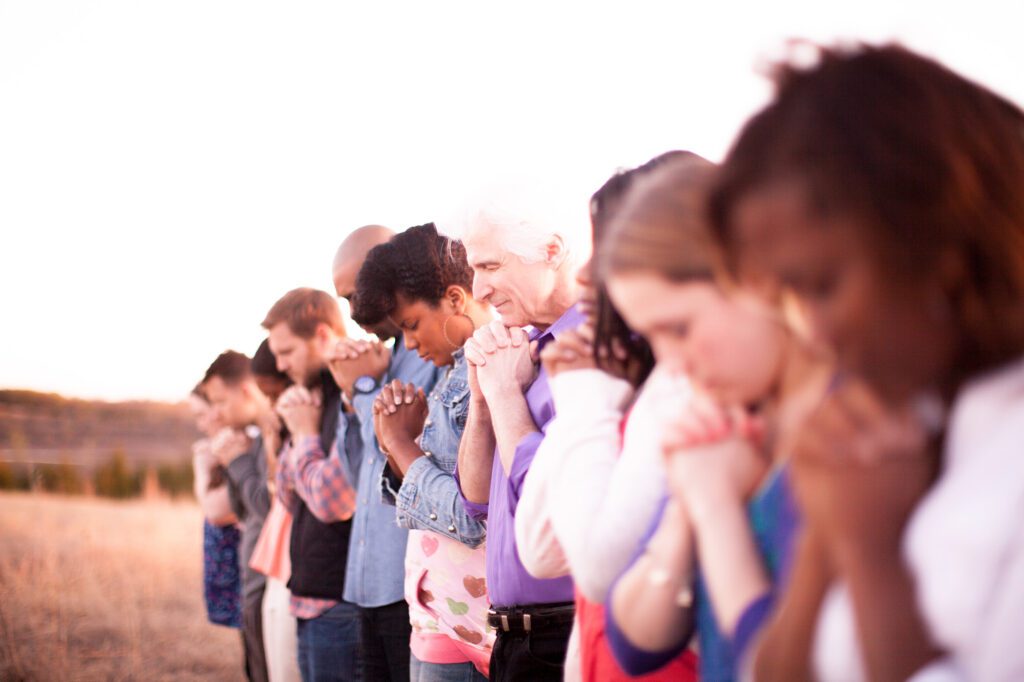
Reformation Sunday celebrates the transformative recovery of biblical truth brought by the Protestant Reformation. But today, as Dwight Smith’s Renovation and Ryan Burge’s research show, the Church faces a new challenge—a need for a modern reformation focused on church ecclesiology and multiplication. Why is this so urgent? Here are seven compelling reasons, inspired by Smith’s theology and Burge’s data, why we should make church multiplication a priority in our prayers this Reformation Sunday:
1. Biblical Mandate for Exponential Growth
Smith highlights an important truth: Scripture emphasizes multiplication over mere addition. Christ’s command to “make disciples of all nations” (Matt. 28:19) calls us to think beyond growing larger churches—it’s about planting new ones. The early church thrived by creating new congregations, a model that continues to inspire today. Take Clear Creek Community Church, for example—they’re on a mission to plant 1,000 churches across generations, harnessing the exponential impact of multiplication. And the need is urgent. Burge’s research reveals that 85 million Americans never attend religious services, a sharp rise from 45 million in 2008. The solution? Prayer and action. When churches align with God’s vision for viral evangelism, each new congregation becomes a hub for spreading the Gospel, sparking a movement of growth and transformation.
2. Countering Demographic Collapse
Burge’s analysis reveals a generational crisis: churches are failing to replace aging members with new converts. Churches must baptize or integrate new members for every funeral to avoid decline. Although younger generations are less likely to attend, they include a committed core—24% of Gen Z attend weekly, a higher rate than Millennials and Gen X. However, biological attrition is outpacing conversion. Smith’s saturation strategy—”planting churches within easy access of every person”—addresses this by creating fresh avenues for outreach. A church of mobilized witnesses has more “surface area” for evangelism than one that emphasizes centralized gathered activities. Prayer on Reformation Sunday for a new reformation in the church petitions God to reverse demographic freefall through multiplication-driven growth.
3. Reformation Theology Demands Structural Change
The Protestant Reformation reformed doctrines and structures, decentralizing religious authority. Similarly, Smith calls for an ecclesiological reformation that shifts from institutional maintenance to missionary mobilization. The Reformation principle ecclesia semper reformanda (“the church always reforming”) applies here: just as Luther challenged papal authority, modern churches must decentralize ministry, empowering all believers to plant churches. Burge’s finding that frequent churchgoers are more theologically conservative suggests that multiplication could preserve orthodoxy while expanding reach. Prayer invites God to dismantle complacency and ignite structural renewal.
4. New Churches Grow Faster and Reach Further
Data consistently shows that new congregations grow faster than established ones. Smith attributes this to their cultural agility and evangelistic focus. For example, Hope Chapel’s 2,300 granddaughter churches illustrate how multiplication compounds impact. Burge’s research adds nuance: while overall attendance declines, committed attendees are more engaged. New churches harness this energy, targeting unreached subcultures. Prayer on Reformation Sunday seeks God’s favor for these dynamic startups, which often pioneer innovative methods to connect with secularized communities.
5. Saturation Planting as Antidote to Secularization
Smith’s saturation model aims for “one evangelistic congregation per 1,000 people,” ensuring repeated gospel exposure. This strategy counters Burge’s observation that secularization is accelerating in previously religious regions. In Houston, collaborative church planting and unified prayer have reduced racial and denominational divides, demonstrating multiplication’s unifying potential. Prayer recognizes that only saturation can counteract the “floor effect” Burge identifies—the point where secularization becomes entrenched.
6. Mobilizing the Committed Minority
Despite declines, Burge notes that remaining churchgoers are more devout: weekly attendance among 18–35-year-old Christians rose 7% since 2008. Smith sees the mobilization of all of God’s people as key to multiplication, urging churches to “mobilize every member” as witnesses to the Gospel. Reformation Sunday prayer focuses on activating this cohort, equipping them to witness actively in workplaces, neighborhoods, and digital spaces. For example, Gen Z’s tech-savvy and entrepreneurial spirit could birth churches that reach digital natives that bring believers of all ages and interests together in worship, growing in the life of Christ, and working throughout the week on mission.
7. Honoring Reformation Legacy Through Missional Obedience
The Reformation gave us the powerful idea of the priesthood of all believers, yet many modern evangelical churches still centralize ministry. Smith’s vision challenges this, calling every believer to embrace their role in multiplying the faith. Burge’s research on political polarization in churches highlights how crucial unity in mission is today. On Reformation Sunday, let’s move beyond shallow divides and pray for a bold, transformative movement that echoes the Reformers’ courage and trusts in this timeless truth: “Whatever God does in the world, He does through all His people, the Church.”
The Challenge on November 2, 2025
Reformation Sunday isn’t just about looking back—it’s a rallying cry for the church today. Dwight Smith’s vision for ecclesiological reformation and Ryan Burge’s eye-opening stats point to one clear truth: the church risks losing its mission without prayer-driven multiplication. Through bold prayers for explosive growth, renewed structures, and widespread church planting, we can honor the Reformation’s legacy while tackling the challenges of the modern world. As Smith reminds us, “God’s mission is accomplished when His people embrace multiplication.” This powerful vision starts with prayer, because true transformation is only possible through God’s intervention.
________
Ryan Burge is an associate professor of political science at Eastern Illinois University and a leading researcher on religion and politics in the United States. A former American Baptist pastor with 17 years of ministerial experience, Burge is renowned for his data-driven analyses of religious trends, including the rise of the “nones” (religiously unaffiliated individuals) and the politicization of evangelicalism. His work has been featured in The New York Times, 60 Minutes, and his Substack newsletter, Graphs About Religion. He authored four books, including The Nones: Where They Came From, Who They Are, Where They Are Going, and The Great Dechurching.
Dwight Paul Smith founded Saturation Church Planting International (SCPI), a global ministry mobilizing churches to establish gospel-accessible congregations in underserved communities. With a doctorate in Missiology, Smith’s work emphasizes biblical ecclesiology, decentralized leadership, and empowering every believer as a missionary. A seasoned pastor and former president of United World Mission, he has trained church leaders in over 70 nations and authored Renovation: Divine Design in the Life of the Church, which calls for structural reformation to align modern churches with New Testament principles of multiplication and discipleship.



